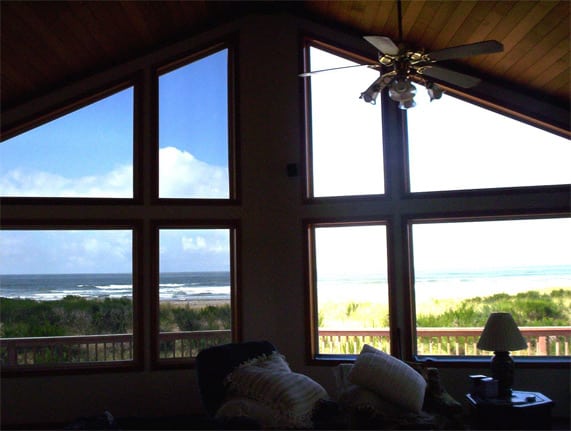Upgrade Your Home with Expert Residential Window Tint Providers
Upgrade Your Home with Expert Residential Window Tint Providers
Blog Article
How Residential Window Tinting Improves Your Home's Energy Performance
Residential window tinting offers a compelling remedy for homeowners looking for to improve energy efficiency within their living rooms. By using specialized movies to windows, it efficiently lowers heat transfer, thereby maintaining interior temperatures and reducing the requirement for excessive home heating or cooling.
Understanding Home Window Tinting
Understanding home window tinting is important for homeowners seeking to improve both convenience and energy performance in their home. Residential Window Tint. Window tinting involves the application of a thin film to the interior or exterior surface area of glass windows. This movie can considerably modulate the quantity of sunshine and warmth that enters a home, thus influencing interior environment conditions
There are numerous kinds of window tinting films available, each with distinct residential properties. Colored movies take in solar energy, while reflective films disperse it away from the glass surface. Ceramic films supply an equilibrium of visibility and heat rejection, making them a preferred choice amongst home owners. The efficiency of window tinting is commonly measured by its Visible Light Transmission (VLT) percent, which indicates exactly how much light can go through the movie.
Advantages of Energy Effectiveness
Home window tinting not only boosts appearances but also plays a considerable function in boosting energy performance within household areas. By lowering warm transfer with home windows, tinted films create a more secure interior climate, which can result in substantial reductions in power usage for cooling and heating. This power effectiveness converts right into lower energy expenses, supplying home owners with considerable lasting financial savings.

Furthermore, window tinting enhances the comfort of living rooms. By minimizing glow and blocking hazardous UV rays, tinted windows produce a more enjoyable environment, which can result in boosted well-being for passengers. The defense against UV rays also aids protect furniture and floor covering from fading, adding to the durability of house things.
Exactly How Tinting Functions
Tinting films run through a mix of innovative products and innovations made to control the quantity of solar power going into a home. Primarily made up of polyester, these movies usually incorporate metallic or ceramic particles that take in and mirror heat. This twin capacity allows them to considerably reduce the penetration of ultraviolet (UV) rays and infrared radiation while permitting noticeable light to travel through.
The efficiency of home window tinting is determined by its solar warmth gain coefficient (SHGC), which shows just how much solar power is transferred via the home window. Lower SHGC values are preferable as they denote greater warmth rejection. In addition, home window tints can include a selection of shades, enabling house owners to tailor their visual preferences while boosting power performance.
Furthermore, these movies act as a barrier, stopping warm loss throughout colder months by showing indoor heat back into the space. This thermal insulation impact matches the air conditioning benefits acquired throughout warmer months, contributing to a well balanced indoor climate year-round. By taking care of solar power properly, household home window tinting not only boosts convenience however also plays a crucial duty in minimizing power intake and decreasing utility costs.
Selecting the Right Color

There are numerous kinds of home window films offered, including dyed, metalized, and ceramic. Dyed films are cost-efficient however may have restricted toughness. Metalized films provide far better warmth being rejected but can hinder electronic signals. Ceramic movies provide outstanding heat control without jeopardizing exposure and are highly durable, making them a popular selection.
Visible light transmission (VLT) is one more crucial aspect, as it indicates the browse around this site amount of all-natural light that can pass via the tinted glass. Property owners should select a tint with a VLT that matches their illumination preferences while still providing appropriate glow reduction.
Additionally, assessing the solar heat gain coefficient (SHGC) can assist establish just how well a tint can obstruct warm from sunshine. A reduced SHGC shows far better warmth control, eventually enhancing power effectiveness.
Installment and Maintenance Tips
Appropriate setup and upkeep are vital elements in maximizing the advantages of domestic home window tinting. Experts likewise use specialized devices and methods, which can enhance the sturdiness and efficiency of the color.
Adhering to installation, upkeep is essential to lengthen the life of the home window film. It is recommended to wait at the very least 30 days before cleansing the tinted home windows to enable the glue to heal fully.
Attending to these concerns promptly can protect against additional damage and maintain energy effectiveness. By adhering to these setup and upkeep suggestions, home owners can ensure their window tinting proceeds to provide considerable energy cost savings and convenience for years to come.
Final Thought
Finally, property window tinting acts as an effective service for boosting power performance within homes. By lowering warm transfer and blocking damaging UV rays, window movies add to decrease energy intake and enhanced indoor convenience. The selection of ideal tinting materials, along with appropriate installation and upkeep, even more optimizes these benefits. Inevitably, window tinting stands for a sustainable financial investment that not only decreases utility costs however additionally promotes a comfy living environment throughout the year.
Home window tinting involves the application of a thin movie to the basics interior or exterior surface area of glass windows. By minimizing warmth transfer through windows, colored movies develop a more stable indoor Home Page environment, which can lead to substantial decreases in power consumption for heating and cooling.The efficiency of home window tinting is gauged by its solar warmth gain coefficient (SHGC), which indicates exactly how much solar energy is transferred via the window. By handling solar power effectively, domestic home window tinting not just enhances comfort however also plays an important function in decreasing power intake and decreasing energy costs.
By lowering warmth transfer and obstructing harmful UV rays, window movies add to decrease power usage and boosted indoor comfort.
Report this page